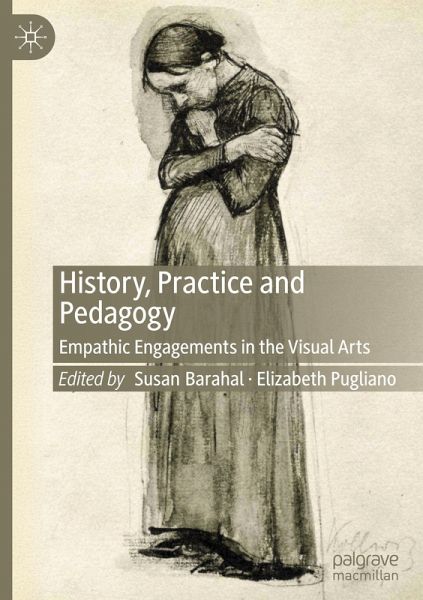
History, Practice and Pedagogy
Empathic Engagements in the Visual Arts
Herausgegeben: Barahal, Susan; Pugliano, Elizabeth

PAYBACK Punkte
68 °P sammeln!
This edited volume explores the historical, practical and pedagogical possibilities for expressing and cultivating empathy through works of art. While aspects of what we today recognize as empathy has nestled in the artistic experiences and philosophies of all ages, the subjective and elusive nature of empathic responses has often resulted in the relegation of empathy to the margins of art historical inquiry. Moving into the second quarter of the twenty-first century, amidst global health crises, civic unrest, political turmoil, and persistent social inequities and injustices, this capacity to...
This edited volume explores the historical, practical and pedagogical possibilities for expressing and cultivating empathy through works of art. While aspects of what we today recognize as empathy has nestled in the artistic experiences and philosophies of all ages, the subjective and elusive nature of empathic responses has often resulted in the relegation of empathy to the margins of art historical inquiry. Moving into the second quarter of the twenty-first century, amidst global health crises, civic unrest, political turmoil, and persistent social inequities and injustices, this capacity to feel with and as someone or something outside of ourselves is more critical than ever. Probing the very notion of empathy, contributions address themes ranging from environmental and social justice to identity and inclusion to transdisciplinary pedagogies and practices, each with a critical eye to how works of art not only appeal to empathic sensibilities, but might play an active role in developing capacities for empathy in viewers.












